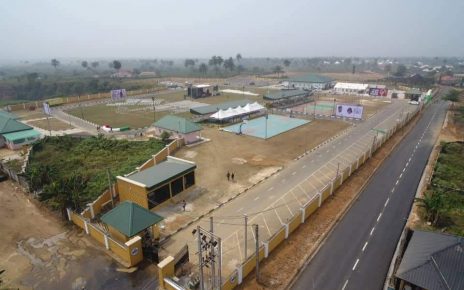TheHILL. | FEATURE | April 10, 2021.
Since inception of the present political dispensation in 2015, Akwa Ibom has consistently developed critical infrastructure and taken decisive steps to enhance the ease of doing business with the result that Akwa Ibom remains attractive to investors, entrepreneurs, as well as those seeking greener pastures. But these are not without a downside.
The downside to all these is not just the pressure on public infrastructure but the growing challenge of managing municipal solid waste emanating from the immense domestic, commercial and industrial activities in the state.
However, the population of the state, which is estimated at Six million is still growing, and consequently continues to receive pressures from ceaseless migration from the hinterland and the state’s suburbs. As the country’s emerging state, Akwa Ibom houses lots of Industrial complexes, commercial ventures and a bourgeoing middle class. This has mounted much pressure on its environment, ocassionning increased volume of waste generation.
The effects of these pressures would have worsened and leave her at a disadvantaged position or cause her a victim of her success. Why? Because as pundits observe, cities are at the nexus of a further threat to the environment, for the production of an increasing quantity and complexity of wastes. But being that there exists a formidable waste and environmental management system handy to offload the ocassionning environmental effects that could have ensued, the state is not a victim of these environmental realities.
This could be attributable to the proactiveness of governor Udom Emmanuel of Akwa Ibom State, who priorly had envisaged the impending negative effects of massive industrialisation on the environment and thus decided to set up the kind of waste and environmental management system the state enjoys today.
According to the World Bank, the generation of solid waste is tied to population and urbanization. If the report by this body which puts per capita waste generation rate at 1.2 kg per person per day is anything to go by, waste generated in Akwa Ibom far outweighs the official figure of 1800 tons per day earlier published in 2018 (emphasis is mine!) Again this leaves so much to be concerned about – and brings to the fore the fact that waste management effort is not a one-off effort by the government but as continuum as human activities in the society is.
This concern is succinctly captured by the phenomenon that increasing with the population of the state is not just the waste generated but the cost of handling it and this underscores the need for more efficient and enduring system of solid waste management. While it has served its purpose by leaving no yawning gap in the effort to keep Akwa Ibom Streets free of refuse, the state waste management agency (AKSEPWMA) has justified its judicious utilization of the resources entrusted on her by the Udom Emmanuel led administration, as it is emperical that waste and environmental challenges resulting from population upsurge has been cut to size.
The import of the foregoing is that the system of solid waste management that yields to inadequacies in the collection, transportation and disposal services has been sustainable and will on the long run support the vision of a clean, secure and more prosperous Akwa Ibom State. Hence, the launch of the Cleaner Akwa Ibom Initiative in 2020 as a new model to address the observed shortcomings in the state’s solid waste management sector has proven efficacious.
Precipitating the change initiated by the Administration of Udom Emmanuel was the need to inject technology, resources and international best practices in the management of municipal waste to replace the old order of haphazard waste collection services, caused by low technology input into route optimization; poor coverage, especially for hard-to-service areas; environmentally degrading and social nuisance-causing dumpsites; poorly managed dumpsites infested with unsightly scavenging and criminal activities; and low cost-recovery for operators due to poor billing solutions.
The new system, encapsulated in the Cleaner Akwa Ibom Initiative, subscribes to the maxim that, “If you want to feel the sunshine, change position!” Yes things have changed, especially in the environment sector. The Udom-Emmanuel-administration-driven change has offered not only waste management solution through a concession arrangement with a major player in the municipal waste management business, but also has incorporated into it other components such as highway and street sweeping, job creation, development and management of sanitary landfills and Transfer Loading Stations.
Courtesy: Media unit of AKSEPWMA





